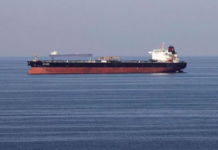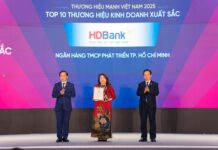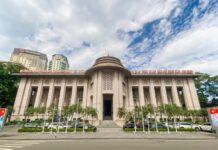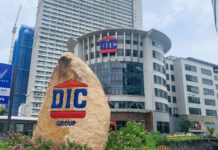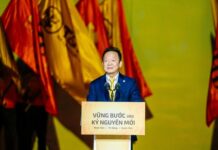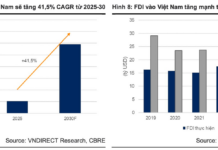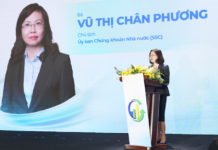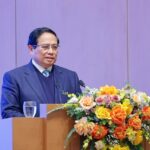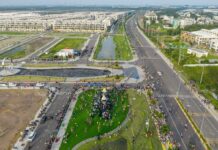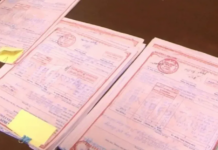Prime Minister Inspects Construction Progress of Can Tho – Hau Giang Expressway
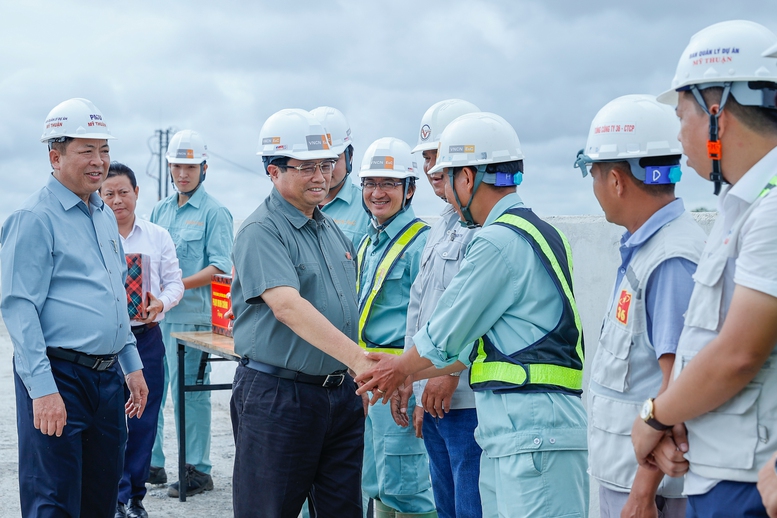
Prime Minister Pham Minh Chinh inspects the construction site of the Can Tho – Hau Giang Expressway at IC3 junction, Long Thanh commune, Phung Hiep district, Hau Giang province – Photo: VGP/Nhat Bac
Prime Minister Pham Minh Chinh, accompanied by Minister of Transport Tran Hong Minh and leaders of relevant ministries, sectors, and local authorities, inspected the construction site of the Can Tho – Hau Giang Expressway at IC3 junction in Hau Giang province. This expressway is part of the North-South Expressway East, which spans from Cao Bang to Lang Son in the north and ends in Ca Mau in the south.
The Prime Minister then proceeded to inspect three junctions, IC3, IC4, and IC5, located in Hau Giang province. IC4 is a crucial interchange connecting the east-west and north-south corridors.
Subsequently, Prime Minister Pham Minh Chinh chaired a meeting with representatives from ministries, sectors, local authorities, investors, project management units, and contractors to evaluate the progress and identify specific challenges to facilitate timely resolution.
This was the eleventh time that the Prime Minister has personally inspected the construction sites of expressways in the region, with six visits conducted in 2024 alone.
The Can Tho – Ca Mau Expressway, the final section of the North-South Expressway East, stretches for over 136.7 km, including a 110.85 km main route and a 25.85 km connector. The project, with a total investment of VND 27,523 billion, commenced on January 1, 2023, and is slated for completion by December 31, 2025.
Two months ago, on October 15, 2024, Prime Minister Pham Minh Chinh, along with Deputy Prime Ministers Tran Hong Ha and Ho Duc Phoc, held a working session with leaders from the Mekong Delta region. They demonstrated unwavering resolve to address challenges related to expressway projects in the region, including the Can Tho – Ca Mau Expressway.
According to reports, significant progress has been made since the meeting on October 15. Land clearance has been completed for the 110.8 km main route, and it is nearing completion for the 28 km connector, with only a 200-meter section in Can Tho City pending resolution.
Contractors have mobilized 234 construction teams, 971 equipment units, and 3,000 workers, operating in three shifts and four teams. The project has achieved 55% and 61% of the planned volume for the main route and connector, respectively. Regarding sand for embankment, 11.8 million cubic meters out of the required 15.2 million cubic meters for 2024 have been supplied, leaving a deficit of 3.4 million cubic meters. The cumulative disbursement reached VND 14,353 billion out of VND 14,766 billion (97%), and the disbursement for 2024 stood at VND 5,831 billion out of VND 6,356 billion (92%), meeting the plan.
However, the construction of transport infrastructure in the southern region and the Mekong Delta often faces challenges, including the availability of filling materials for road embankments. The shortage of sand for this project is a common issue among other projects in the region, and it is a critical factor determining the progress of these projects at this point. During the working session, the participants discussed issues related to sand for embankments, material prices, and crushed stone supply.
In his conclusion, Prime Minister Pham Minh Chinh reiterated that the Mekong Delta region has two critical bottlenecks in transport infrastructure and human resources. The Party and State are committed to addressing and overcoming these bottlenecks with appropriate timelines and steps that align with the country’s circumstances and conditions. According to the master plan, by 2030, the Mekong Delta region will have 1,200 km of expressways, and we are determined to achieve this goal.
The Prime Minister emphasized that there must be no change in the timeline, and the North-South Expressway East, stretching from Cao Bang – Lang Son to Ca Mau, must be completed by December 31, 2025. This is a command from the heart, a requirement of the country, and the expectation of the people. Additionally, he instructed the study and implementation of the Ca Mau – Dat Mui section (approximately 80 km), with Ca Mau taking the lead in its development and receiving support and capital allocation from the Central Government, aiming to commence construction next year.
The Prime Minister underscored the principle of “only discussing how to do it, not whether to do it.” He emphasized the responsibility of Party committees and authorities to mobilize the entire political system, mass organizations, and the people, with the support of businesses, under the principle of “Party leadership, State management, and people as the masters.” This collaborative effort ensures that the project management units and contractors are not left alone on the construction site.
While primary contractors should not sell their contracts, they must cooperate, share work, and provide opportunities and conditions for local contractors to grow and thrive, embracing the spirit of “working together, benefiting together, winning together, and developing together.” For tasks that can be done manually, youth, military, and public security forces are encouraged to actively participate. Local authorities, mass organizations, and agencies are urged to enthusiastically respond to the campaign “500 days and nights of emulation to complete 3,000 km of expressways.”
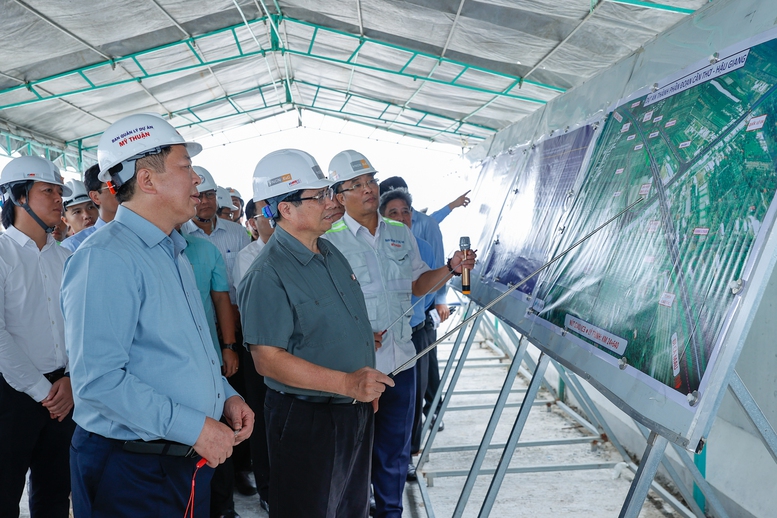
The Prime Minister demands unwavering commitment to the deadline, stating that the North-South Expressway East, from Cao Bang – Lang Son to Ca Mau, must be completed by December 31, 2025 – Photo: VGP/Nhat Bac
Acknowledging the achievements and progress made in the Can Tho – Ca Mau Expressway project since the working session two months ago, the Prime Minister emphasized the need to remain vigilant and accelerate the project’s progress while ensuring quality, technical standards, aesthetics, safety, and environmental protection. He also stressed the importance of preventing negativity and wastefulness.
The Prime Minister urged all relevant parties to draw lessons from the project’s implementation, aiming to improve what has been done well and address shortcomings. He emphasized the importance of proactive and active performance in carrying out assigned tasks according to functions, duties, and authority. If challenges arise, they must be addressed promptly, and if they exceed their authority, they should be reported to competent authorities for consideration and decision-making.
The Prime Minister instructed the relevant local authorities, particularly Tien Giang province, to immediately inspect and address issues related to licensing of mines and prices of construction materials. He demanded strict handling of individuals causing delays and, more importantly, any involvement in corruption. The Ministry of Natural Resources and Environment was tasked with urgently guiding the implementation of the new Law on Geology and Minerals, while other ministries were instructed to provide specific guidance and close coordination. The relevant local authorities were expected to complete the procedures for licensing sand, gravel, and stone mines within December 2024 and focus on directing the immediate implementation, resolutely preventing shortages of common construction materials, and combating corruption and negativity.
Regarding construction organization, the Prime Minister noted that as of this point, the overall progress of the Can Tho – Ca Mau route has reached 53% and 61% of the 2024 plan, respectively (still 8% behind schedule). He requested the Ministry of Transport to strongly direct the My Thuan Project Management Authority, contractors, and local authorities to expedite the completion of procedures for exploiting construction material mines, ensuring sufficient reserves and capacity. He also emphasized the need to be more proactive and strengthen the workforce and equipment, taking advantage of favorable weather conditions to make up for the delayed progress. The Ministry of Transport was also instructed to guide the implementation of proactive and active construction measures to shorten the construction time.
Contractors were urged to increase machinery, equipment, and human resources with the spirit of “overcoming the sun, winning over the rain, and not losing to storms,” working in “three shifts and four teams,” “crossing holidays, Tet, and rest days,” and “eating hastily and sleeping urgently.” These efforts will contribute to accelerating the construction progress and completing the project ahead of the proposed schedule.
The People’s Committee of Can Tho City was instructed to direct relevant departments, sectors, and grassroots authorities to resolve and hand over the remaining land within December 2024. Party committees and local authorities, especially in the construction areas, were tasked with continuing to ensure effective resettlement and improving the lives of people who have given up their land, houses, and fields for the project. It is imperative to ensure that their lives in the new residence are better than in the old one. Special attention should also be given to the well-being of engineers, workers, and employees on the construction site, especially during the upcoming Tet holiday.
“Vietnam’s Strategic Advantage: Prime Minister Vows to Develop Semiconductor Industry”
“Prime Minister Pham Minh Chinh emphasized the development of the semiconductor industry as a strategic breakthrough and a key task for Vietnam. He underscored this endeavor as a necessity and a resolute commitment, leveraging the country’s unique potential, prominent opportunities, competitive advantages, and strategic vision. The directive involves assigning general and specific tasks and solutions to ministries, sectors, and local authorities.”
Accelerate and Innovate: Surpassing Excellence with 15/15 Targets for 2024
At Resolution No. 233/NQ-CP of the regular November 2024 Government meeting, the Government requested that ministries, branches, and localities accelerate and break through to achieve and exceed all 15/15 targets and goals for 2024. They also urged the immediate implementation of new, important, and urgent tasks to create momentum and a stronger position to achieve victory in the plan for socio-economic development in 2025.
Unlocking Vietnam’s Renewable Energy Potential: Overcoming Hurdles for a Brighter Future by February 2025
Prime Minister Pham Minh Chinh has instructed relevant authorities to address all obstacles and challenges faced by renewable energy projects by January 31, 2025. This proactive measure aims to prevent wastefulness of already invested capital and ensure a supplementary energy source to meet the economic development goals for 2025.


